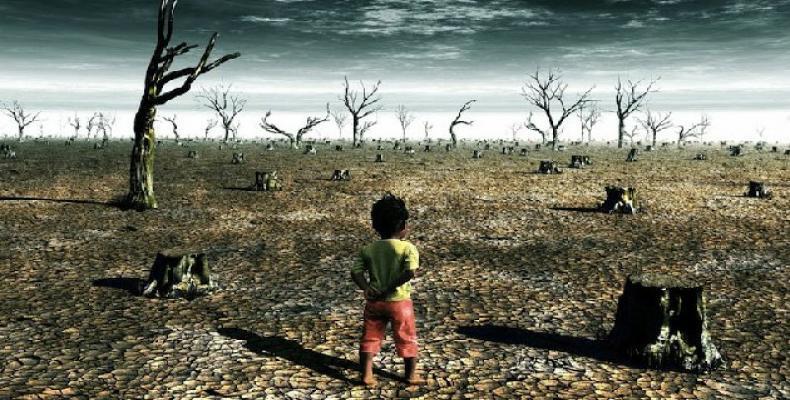La Paz, January 5 (RHC-Xinhua) -- Developed nations hold the key to mitigating global warming, said Bolivian Environment and Water Minister Jose Antonio Zamora.
Even if developing nations in Latin America were to reduce their greenhouse gas emissions, it would not be effective without the cooperation of developed nations, Zamora told Xinhua in a recent interview.
That was one of the main conclusions Bolivia acquired from the 20th Session of the Conference of the Parties (COP20) to the United Nations Framework Convention on Climate Change (UNFCCC), held from December 1-14, 2014 in Lima, Peru, to lay the groundwork for a concrete agreement at this year's COP21 in Paris.
Delegates from 195 countries, including Bolivia, took part in the talks, which left many key financing issues unresolved despite the urgency of global warming, because many of the richer nations were reluctant to commit to funding.
Zamora, who headed Bolivia's delegation to COP20, said Latin America accounts for only 10 percent of the world's total greenhouse gas emissions, so the responsibility mainly lies with the richer industrialized countries, he said.
The developed countries and their capitalist systems believe that to maintain their positions, they must maintain their level of industrial output, and that is preventing them from taking the steps needed to combat the rise in temperatures, he said.
The wealthy nations at this year's COP21 will "want everybody to commit to lowering emissions," whether that's fair to the developing world or not, said Zamora.
The United States, European countries, Australia and others always work as a bloc, noted the Bolivian environment minister, saying they attended the COP20 with a prior agreement to reject the idea that they were historically indebted to the environment in a way that the developing nations are not.
As an example, Zamora noted the bloc of non-aligned nations known as the G-77 China "is a highly respected bloc, but there are divisions within the group, such as those belonging to ALBA (the Bolivarian Alliance for the Peoples of Our America), which have one position, and those belonging to Africa, which have another, as do the emerging countries."
Yet another bloc within the G-77 is the Pacific Alliance, composed of Chile, Peru, Mexico and Colombia, which tend to support the United States, said Zamora.
The Paris talks will be very important to the future of the planet, added Bolivia's Environment and Water Minister Jose Antonio Zamora.
Developed Nations Hold Key to Climate Change

Related Articles
Commentaries
MAKE A COMMENT
All fields requiredMore Views
- UN High Commissioner for Human Rights says Tel Aviv is systematically targeting health care system in Gaza
- Thirty-eight generator sets are restored using Chinese replacement components
- Biden notifies U.S. Congress of planned $8 billion arms sales to Israel
- South African health workers rally to draw attention to the trauma and crisis in Gaza's medical system
- National handball team prepares for the World Cup

